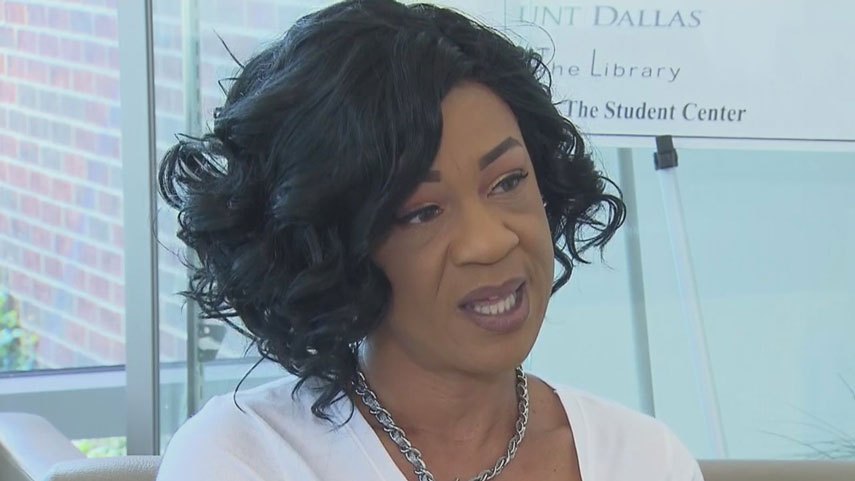DALLAS (CBSDFW.COM) — It is estimated that someone attempts suicide every 28 seconds in the United States — too many will be successful. But for Tonya Monroe, she is now grateful that her attempts failed. Twice.
Monroe, a sociology student at UNT Dallas, spoke to fellow students about her mental health struggles Tuesday, which also happened to be Suicide Prevention Day.
“I was depressed… I felt alone. I felt nobody cared,” Monroe said. “Even when they said they did… When you’re in that place, you have convinced yourself that nobody cares.”
Monroe said her mental health struggles began in high school with an eating disorder and then progressed to self-mutilation, and then separate suicide attempts in her 20s. She said she found her minority community especially resistant to admitting that depression is an illness.
“Oh, girl… Pray about it. Just pray. It’ll go away,” were common responses she received when she talked about feelings of isolation and hopelessness. And while she now freely admits that her faith played a role in her healing, she also sought therapy when death seemed preferable to a tortured life.
“I didn’t want to be looked at as crazy,” Monroe said. “And I was in my own personal Hell.”
She said it has taken two decades to shake the shame; but, she now speaks openly about her journey. She shared her story with fellow students Tuesday, in hopes of convincing others that the pain can end.
“I think it’s amazing, and it’s needed,” Monroe said in regard to UNT’s intention to erase the stigma attached to mental health struggles. “You’re not an outcast, people care about you. It’s really, really awesome that UNT Dallas has the Students and Teachers Reaching Out and Never Giving Up (STRONG program)… They [students] can go talk to somebody.”
STRONG is a new campus group dedicated to raising awareness of mental health issues. The organization’s efforts are funded in part by a federal grant from the Substance Abuse and Mental Health Services Administration (SAMHSA).
Sociology Professor Syeda Jesmin pursued the grant and is leading the effort to equip students to spots signs of distress among peers. And while the grant helps to fund the university’s efforts, a personal victory is priceless.
“I’m a walking, living testament that I got through it,” Monroe said proudly. “And I’m so excited for the rest of my life.”
















BIS requests comments on “Foundational Technologies,” with the goal of developing new export and CFIUS controls | Dentons